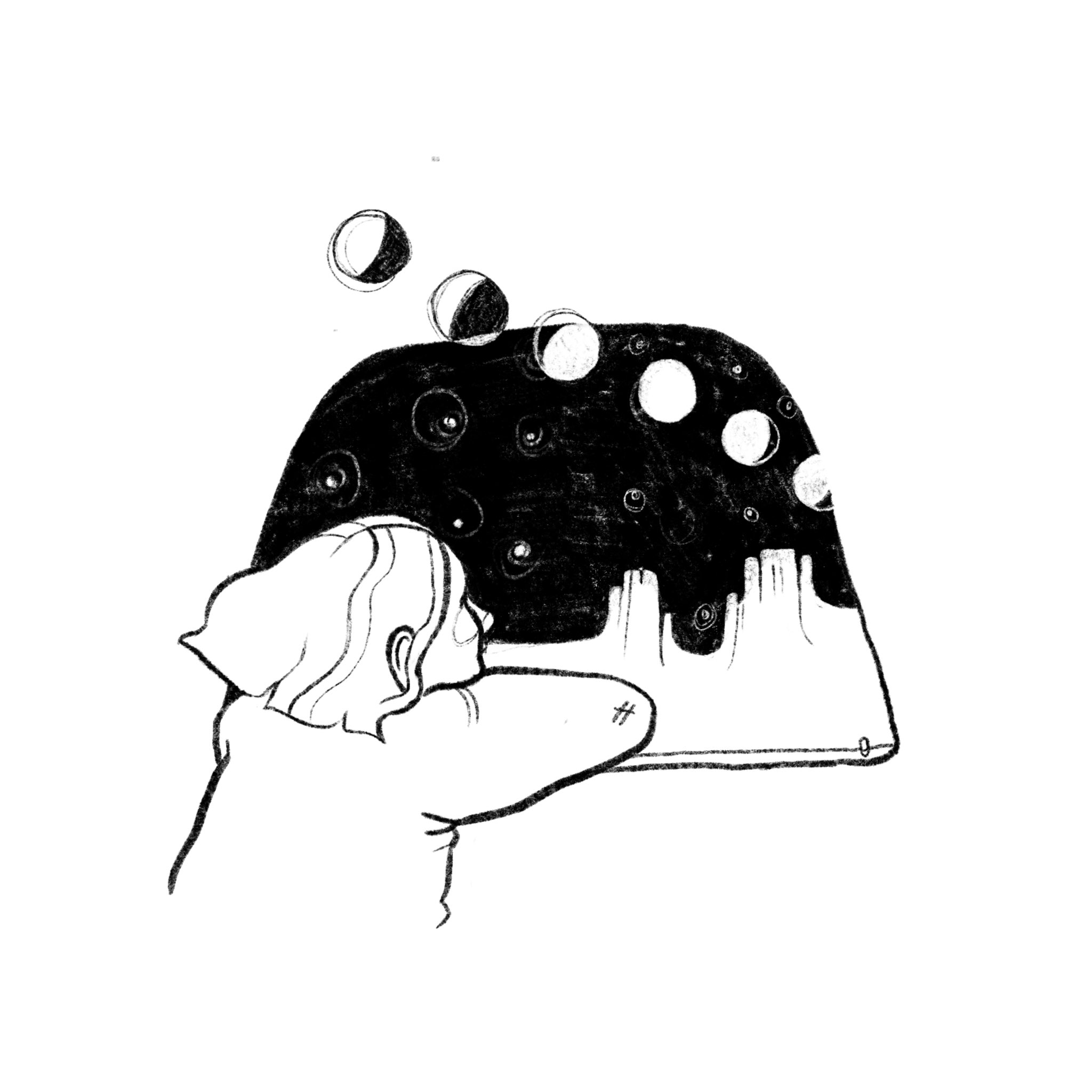On the night sky and returning home
November 18, 2022
 Cora Dow
Cora DowMy dad used to point a telescope out of our guest bedroom window on clear nights, swiveling it to see the cratered surface of the moon, the miniscule rings of Saturn or the smattering of stars visible in the suburbs. Often too sleepy to appreciate the experience, I’d peek through the viewfinder, let the tiny image solidify in my head and then go back to bed. This is the kind of fuzzy childhood memory that makes me miss home. Despite my half-asleep telescope viewings, I loved trying to spot the Big Dipper through the car windows as I drove home on the highway, watching astronomy documentaries with animation that lets you barrel through the cosmos in seconds rather than centuries, feeling the limitlessness of it all.
I suppose what I never realized before leaving home was how familiar the topography is to me, how I could map it out in my head—the patterns of the people and places I grew up with—without even straining to think about it. I imagine that returning home will mean recovering a new memory at every turn, something I’ve forgotten about living there. Just within my own neighborhood, I have a million perfect experiences—early morning runs, late evening walks, picnics by the lake, sledding expeditions to the nearby hill. Mostly, I seek out the comfort of those turns, seeing my family and my dog and my friends, cooking in my own kitchen.
Like many eco-fiction works, James Bradley’s “Clade” steps between generations and timelines, attempting to capture the impossible consequences of climate change by casting a wide temporal net. It starts with Adam and Ellie and Summer, a family of three gradually approaching a near-apocalyptic vision of what climate change may bring, and perhaps has already started to. Depicting devastating floods, unprecedented storms and global outbreaks of disease as extensively as the way many works of environmental fiction focus on the natural world as a marvel to be admired and protected, Bradley unveils its infinite capacity for destruction. And yet, there’s a kind of impersonal beauty that Bradley writes into the destruction, reminding us that humans have only been around for a fraction of Earth’s geological and physical changes. The underlying cycles of this planet were around long before us and will be around long after us.
Near the end of the book, Adam’s descendant Izzie slips away from a party generated by digital overlays on the real world and looks up at the night sky to watch a phenomenon akin to the aurora borealis. It’s said to be a flux in Earth’s magnetic fields, an environmental glitch caused by human impact on the planet that has some sort of twisted beauty of its own. Izzie reflects on the fact that there is always a beginning in her world, despite the catastrophic changes inflicted on the planet. Humanity has spent centuries marveling at the night sky, whether with childlike fascination, scientific investigation or merely an escape—and Bradley pulls this intrinsic quality back into the narrative. Despite the turmoil of the world he builds, the way it looks so vastly different than our own, we’re reminded that there are certain aspects of humanity that remain the same.
Two Tuesdays ago, I went lunar eclipsing at Bradbury Mountain. I blearily gathered my things at 4:30 a.m. and stepped outside just in time to watch the Earth’s shadow slip over the moon’s surface. A total lunar eclipse, a blood moon. I used to watch them in Colorado. It’s weird and wonderful and a little bit perplexing when I think about how I’m here in college and in Maine watching the same phenomenon I used to at home. On the drive to Bradbury, the eclipse inching towards totality before my eyes, I was briefly reminded of searching for constellations through the car window as a child: the soft, searching astonishment of it. It’s the kind of thing that puts it all into perspective, if only for a moment.

Comments
Before submitting a comment, please review our comment policy. Some key points from the policy: